There are rumors that the Abyssinian is descendant from the cats kept by Egyptian Pharaohs themselves. Scientists found 4000-year-old hieroglyphs in ancient Egyptian ruins that bear a striking resemblance to this highly extroverted breed as we know them today. Also called the Cat of the Blue Nile, the Abyssinian is popular throughout Northern America for their expressive eyes, unique coat, and highly extroverted personality.
Think you’re up to the challenge of successfully adopting this divine cat? Here’s what you need to know:
Abyssinian Breed Profile
The Abyssinian has a lithe, slender body of about 12 to 16 inches in length with long legs, a long tail, a wedge-shaped face, broad pointy ears, and beautiful almond-shaped eyes that are always alert and give them a regal appearance. Their small bodies and fine-boned legs are complemented by a graceful walk and an athletic frame that needs constant exercise.
Coat
The coat of the Abyssinian is short to medium length and silky to the touch. One of the characteristics that make this breed stand out from others is their "ticked" hairs, meaning each individual hair has alternate bands of various colors starting darkest at the tip and becoming lighter towards the base. This unique hair structure gives the Abyssinian an impressive coat that looks especially stunning in daylight.
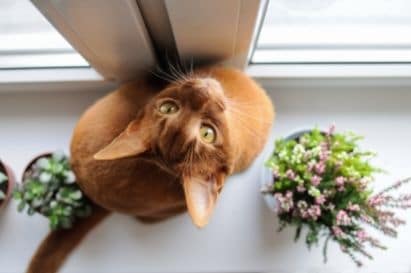
Colors
The coat is composed of various shades of ruddy, blue, cinnamon, red, and fawn. These colors resemble those of an exotic wildcat, perhaps slightly reminiscent of a cougar. Their eyes are either green or gold.
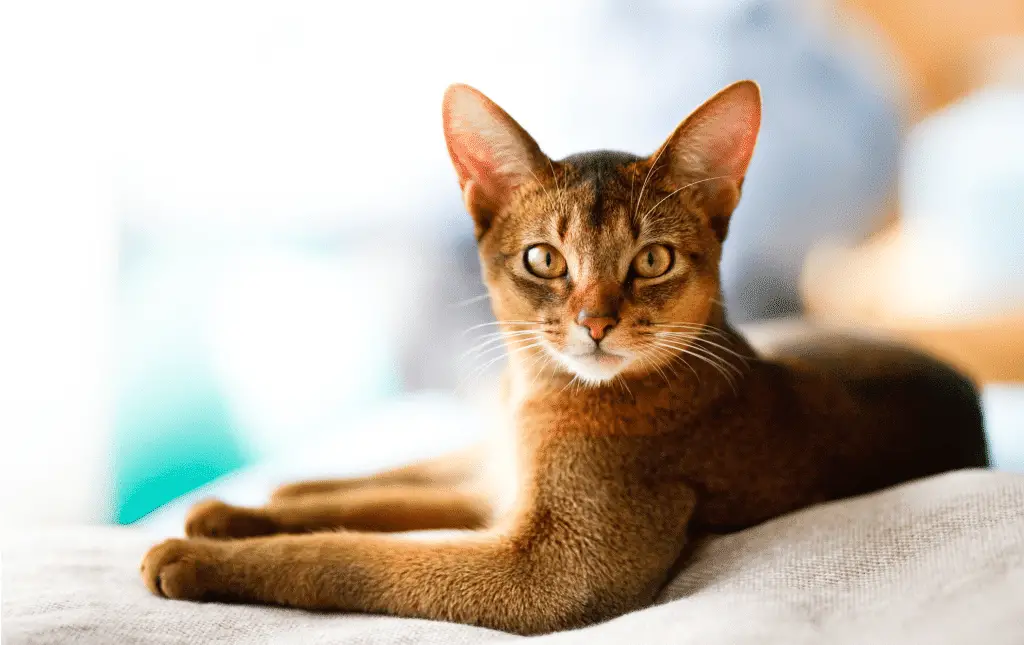
Did you come here looking for a lazy, furry lapful of cat? Probably best to search elsewhere, because this one has a reputation for being the energizer bunny of the cat world. This is a cat that's constantly on the move and thoroughly enjoys exploring whatever it can find. You may walk into your kitchen and find your Egyptian friend sitting on top of the refrigerator, monitoring all family activity. They can also frequently be found chilling on windowsills, watching birds and other wildlife.

The personality of this breed can best be described as friendly, active, and highly adventurous. If you happen to already own an Abyssinian, you have likely discovered by now why they aren't exactly known for their calm demeanor. This is a breed with a highly dynamic and playful nature.
Abyssinians love interaction so much, that they will likely want you to involve them in every aspect of your life. Of course they will still enjoy their solitary moments like any other cat, but if they want your attention, there's a good chance they will continue to pester you until they get it!
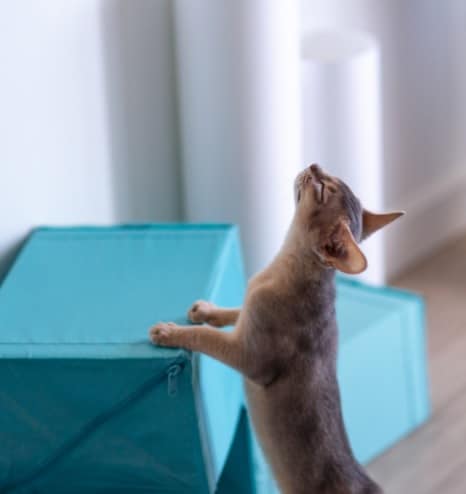
Besides being energetic and extroverted, this is also an intelligent cat that loves to be challenged. If you decide to adopt this breed, we suggest picking up one or multiple feeder puzzles, as this cat will definitely appreciate having access to a few interesting toys and things to keep them occupied.
If you live in a smaller house like an apartment, investing in a treehouse with lots of levels and openings would be a good idea. Abyssinian prefer to climb vertically, so you need to go high up rather than spreading out with the treehouse. If you don't have room for a treehouse, another option is to install wall-mounted shelves so that they can jump from shelf to shelf and perch.
Finally, if you're having trouble keeping them entertained, this cat can easily be trained to walk on a leash, providing another possible outlet for their natural drive to explore.
Contrary to what their wild personality profile might suggest, the Abyssinian is excellent with children and known to quickly develop an emotional bond with their owners. This makes them excellent cats for adoption into big and busy families.

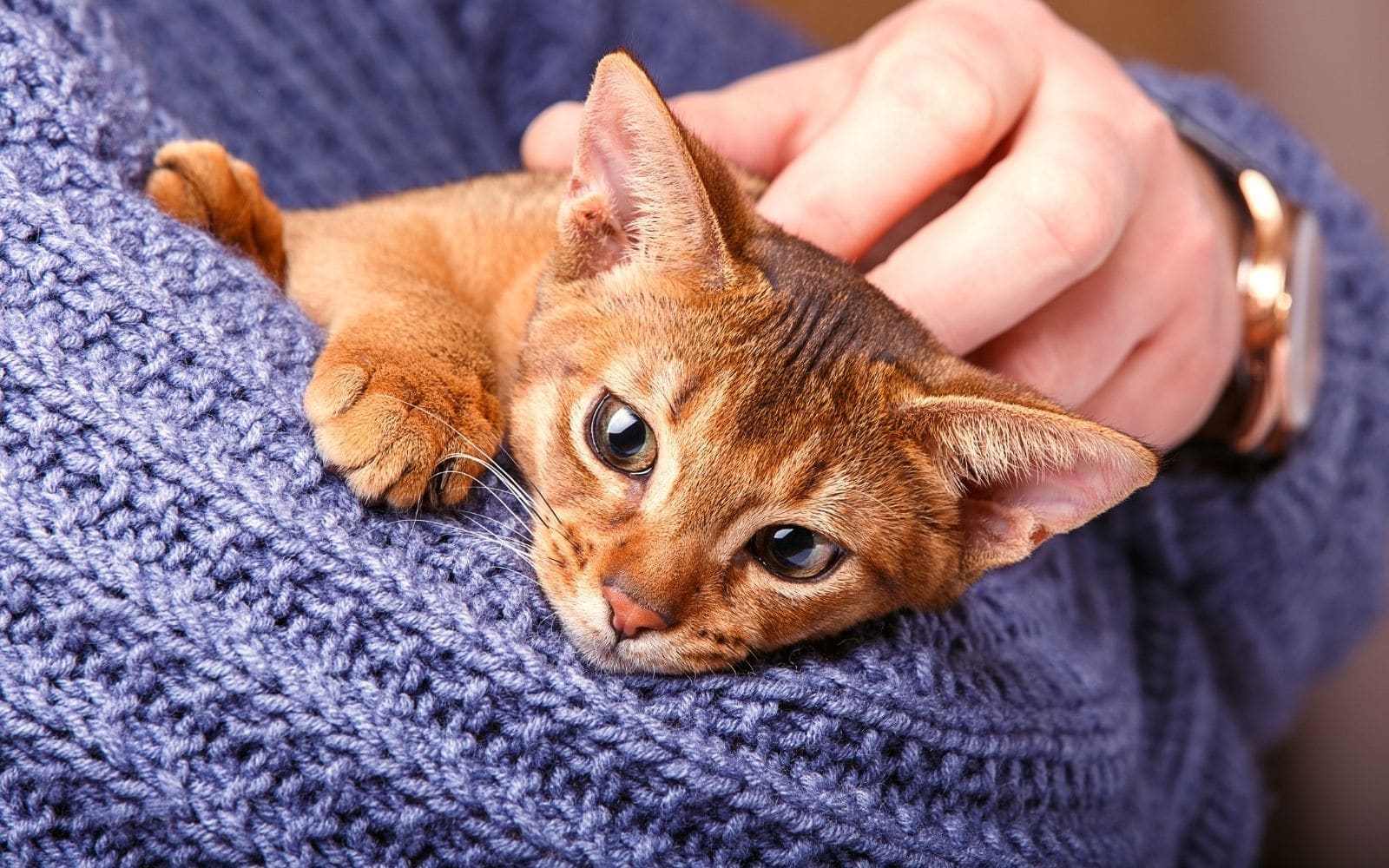
We have good news in the grooming department: the Abyssinian is considered lightweight as they are quite easy to care for. Their minimal shedding and short coat make grooming a lot more manageable than, say, your average long-haired breed. Once-a-week combing should be sufficient to keep their fur shiny and healthy, although you might need to groom more frequently during shedding season.
Still not sure if this is the right feline friend to add to your family? Let's go over some pros and cons:
Pros
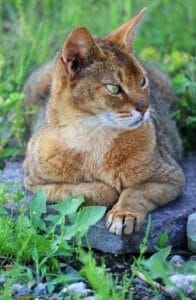
This is a very easy-going, friendly, and social breed that mingles well with people, children, and other animals. Due to minimal shedding, the Abyssinian requires very little in terms of grooming and is an excellent choice for people who suffer from allergies. Their active personality is a great match for energized owners who seek a lot of stimulation in their lives.
Cons
These strong climbers need room to explore and play, so they are less suited to small apartments. While not necessarily reckless, they do require some supervision. If you and your family always have busy schedules, this breed's relatively high need for attention could become a burden. Make sure your family can provide enough stimulation, or you'll find this guy turning grumpy and depressed.
In short
If you want a cat that is intelligent, agile, and will keep you on your toes, then this is exactly the breed for you. As long as you have the time and energy to keep up with him, you'll find the Abyssinian an exciting family friend who's always up for some goofy games or a proper challenge.
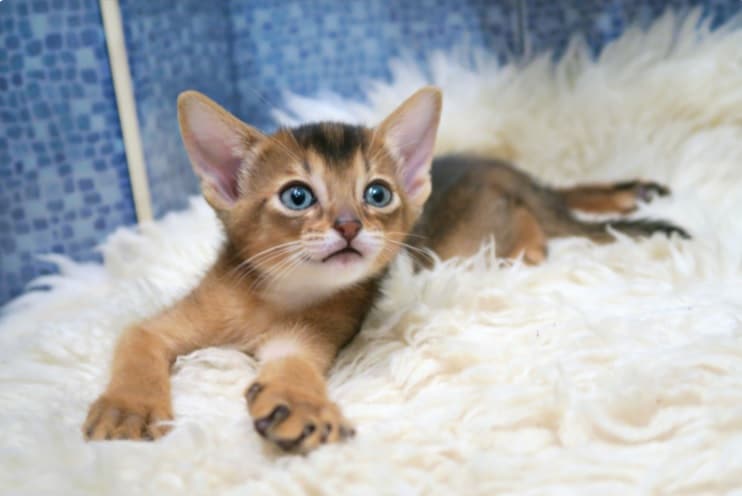
If you’re thinking of adopting an Abyssinian, here's a few things to keep in mind:
- They are prone to an inherited disease called pyruvate kinase deficiency, which leads to red blood cell deficiency (anemia). Reliable tests are available, so you should definitely ask the breeder if your cat has been tested and whether they can share the test results.
- The Abyssinian is known to be extra susceptible to gingivitis and tooth decay, so maintaining dental hygiene is essential for this breed. Check out our guide for brushing cat teeth at home.
- Abyssinians can also suffer from amyloidosis, an renal disease that is thought to be hereditary. Other breeds susceptible to this disease are Siamese, Burmese, Tonkinese, Devon Rex, and Oriental Shorthair.
- Cats from this bred may also suffer from a condition known as progressive retinal atrophy, which causes progressive blindness. Since this can be tested, be sure to ask your breeder about this as well.
Sources:
Frequently asked questions
Are Abyssinian cats hypoallergenic?
No, they are not hypoallergenic. Since allergens are produced on every cat’s skin and fur, there is no such thing as a genuinely hypoallergenic cat. However, the Abyssinian is a great option for those with allergies because they have shorter hair than most other cat breeds. Since this reduces shedding to a minimum, they generally do not incite cat dander or fur-related allergies.
How much do Abyssinian cats cost?
Finding a purebred Abyssinian cat at a shelter is difficult. If you're lucky, you may find one at a rescue group for $75 to $150. If you go the breeder route, the cost can easily range from $500 to $1,200.
If you do decide to get one from a breeder, research your breeder to make sure they are responsible people. An ethical breeder will produce healthy cats and hold to the breed standards.
How long do Abyssinian cats live?
The Abyssinian has a long average life span of 15 years, so be sure to take that into consideration. You'll never be bored during those years, because of their love for exploring and getting into mischief. They aren't known as the cat kingdom clown for nothing!

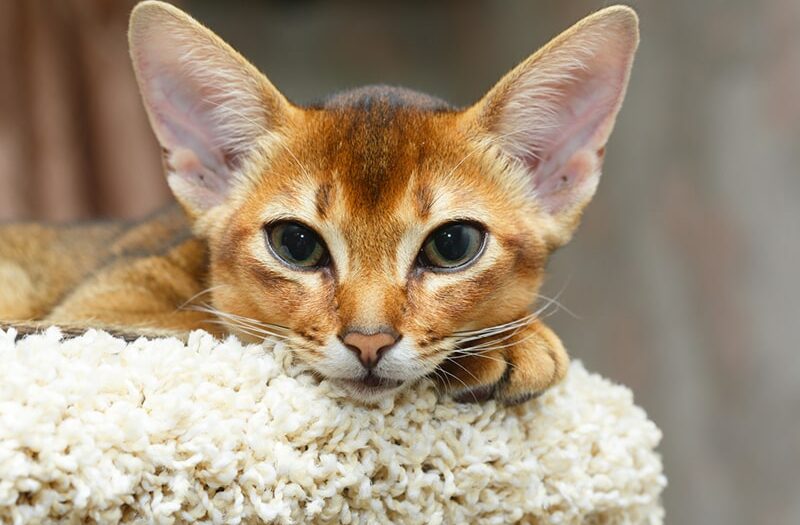
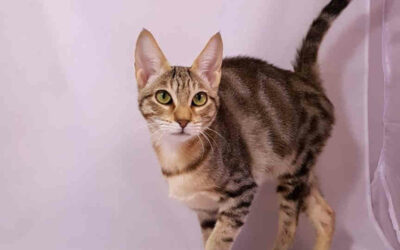
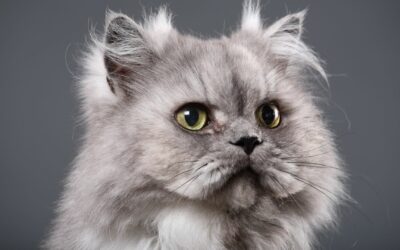
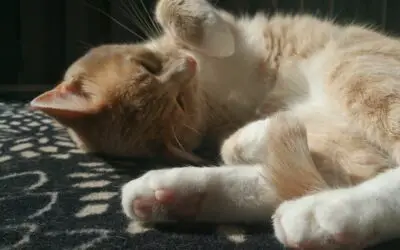

I dearly love this type and breed of cats so much; hope to hear from you soon. NINA RANKIN.
Hey Nina, thank you for leaving a comment! We love the Abyssinian too 🙂